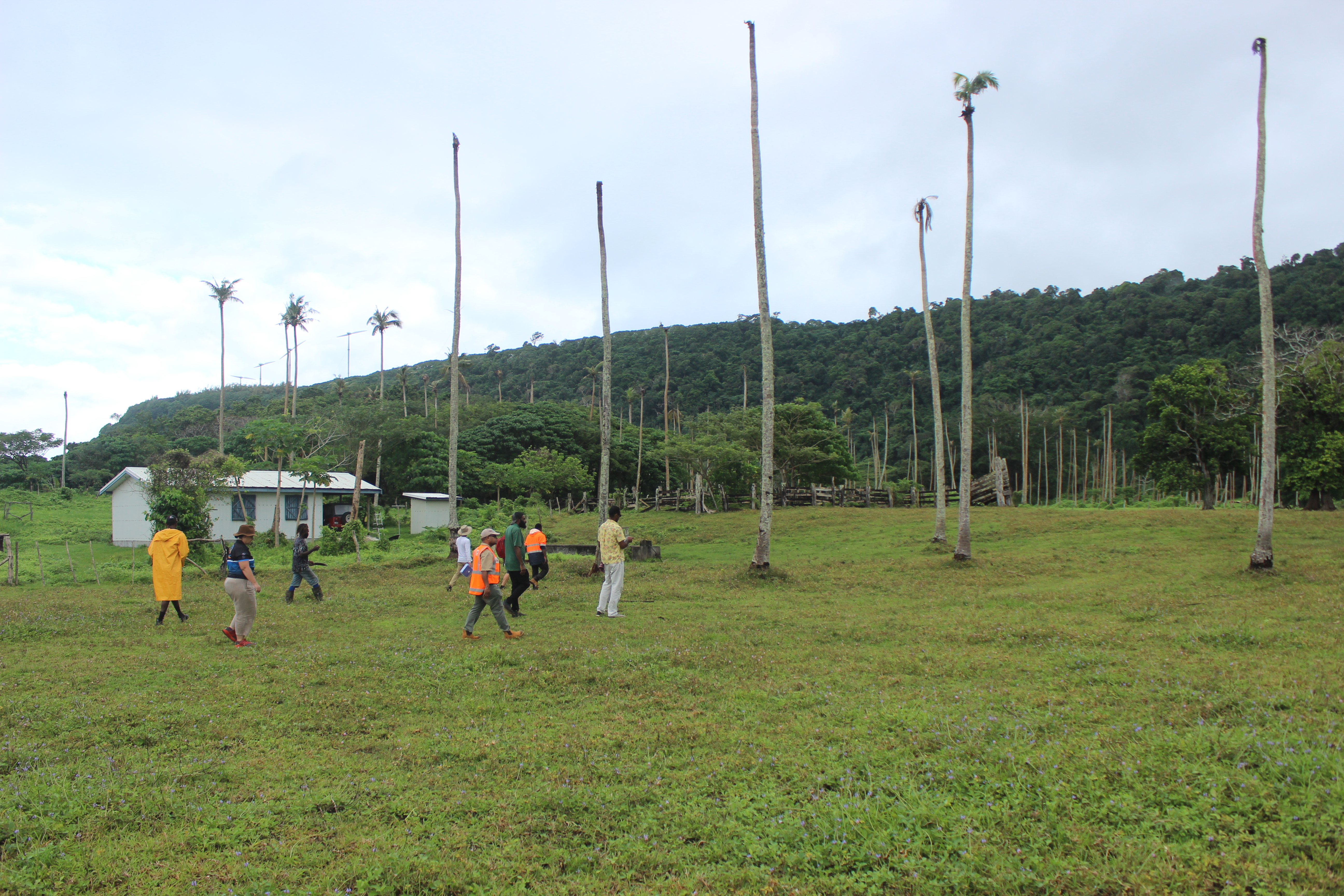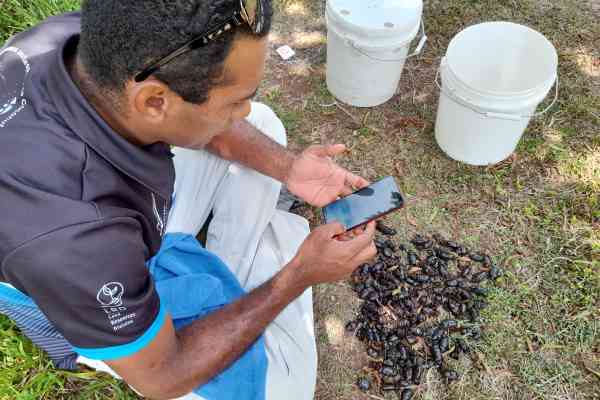(Contenu disponible en anglais uniquement)

As the world marks International Day of Plant Health today May 12, we are reminded of a tree that has played a vital role in sustaining our Pacific people for many generations.
Known as the ‘tree of life’, the coconut has charmed many visitors to our shores and has served a critical role in food security and economic livelihoods. Coconut palms have helped drive many Pacific economies through products traded in the region and around the world. One example is copra, with Pacific Island countries supplying 50 per cent of the world’s share of this important commodity.
One of the top copra producers, Papua New Guinea, earns US$36.5 million annually from copra exports with about 464,328 of its households (2.6 million people) engaged in the coconut industry.
In smaller outer atolls where crop cultivation is not possible, coconut has served as a staple food for island inhabitants.
However, the health of our coconut palms has come into focus in recent years due to attacks by invasive pests and disasters. The Coconut Rhinoceros Beetle (CRB) has been destroying coconut trees by the millions, which can lead to increased food insecurity, as well as wipe out an entire coconut industry in certain areas, causing major losses to economies that rely on it.
In Vanuatu, CRB attacks on coconut palms have become an issue of food security as more than half of the coconut trees on the main island of Efate have been infested with pest. The once picturesque coastlines of Vanuatu adorned with swaying coconut trees have now been replaced by dead trees – standing lifeless palms bereft of their resplendent green fronds.
“My appeal to the public, farmers and relevant NGOs and donor partners is to work with us to control the CRB,” says Armstrong Sam, the Acting CEO of Biosecurity Vanuatu.
Sam added that damage caused by the two cyclones that hit Vanuatu this year has added to the country’s woes, with much debris and dead tree trunks left in the cyclones’ wake.
“We are working on biocontrol agents to be placed at CRB breeding grounds and racing against time to replace traps that were destroyed by the cyclones,” said Sam.
A concerted effort to manage the beetle has been initiated by the New Zealand government through its Ministry of Foreign Affairs and Trade. The country is contributing up to NZ$18 million to support response efforts to limit the spread of the beetle. The funding targets efforts in Papua New Guinea, Vanuatu, and the Solomon Islands to halt the incursion of the new Guam strain (CRB-G) which is the most damaging beetle.
Funding will also support response efforts for an existing strain that has been in the Pacific for decades (CRB-S) and has recently entered parts of the Solomon Islands and Vanuatu.
As a dedicated regional body responsible for plant protection, SPC provides its knowledge and capacity to help control the persistent pest by detecting them and developing long-term solutions to its incursion in partnership with AgResearch New Zealand. SPC currently coordinates the Pacific Awareness and Response to Coconut Rhinoceros Beetle (PARC) project under the auspices of the Pacific Plant Protection Organisation.
While scientists work to identify effective fungus and virus strains that can counter the aggressive CRB Guam strain, locals will continue to ‘cut, burn and kill’ the dead coconut palms from the pest-infested areas. Coconut replanting rehabilitation programmes have also been adopted in countries like Papua New Guinea, which is not waiting to have the coconut pest wreak havoc on its beloved coconut industry.
It is therefore critical that relevant country stakeholders enhance regional partnerships to guide efforts, including developing new tools and technologies, and use these for improved surveillance, containment, and control of CRB.
Critical to our sustenance, our economies, our heritage and our lifestyles, the coconut tree must be saved so that it can thrive for future generations. This vital work to preserve an essential Pacific agricultural industry must be remembered as the region and the world celebrates the International Day of Plant Health.
Written by Matilda Simmons, Communications Assistant, Pacific Community
